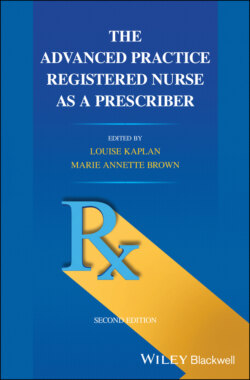Читать книгу The Advanced Practice Registered Nurse as a Prescriber - Группа авторов - Страница 23
Knowledge of the patient
ОглавлениеProper prescribing of medications requires careful evaluation of the patient with consideration of the patient’s health history, medication history, and physical assessment. A complete medication history includes herbal and non‐prescription medications, prescription medications, recreational drugs, and all drug reactions. This more comprehensive approach involves assessing allergic responses, drug interactions, and family genetic propensities. Thirty‐three states, the District of Columbia, Guam, Puerto Rico, and the US Virgin Islands have legalized medical marijuana and 14 states and territories have approved adult use marijuana (National Conference of State Legislatures, 2020). It is important to know about patient use of marijuana to be able to effectively guide patients with evidence‐based information when the APRN is authorized by law (see Chapter 9).
One important but often forgotten area of assessment is the patient’s ability to manage his or her own medications. Names of drugs and the purpose of each drug may pose challenges for many patients. Assessment of the patient’s motivation, cognitive abilities, attitudes about medication management, self‐care, readiness to learn, health literacy, occupation, and educational background is essential to avoid false assumptions about the patient’s ability to follow the healthcare plan. For example, a provider may incorrectly assume that a patient who is a nurse does not require the same counseling as other patients about medication side effects. Some patients with unusual chronic problems may be more knowledgeable about their illness and medication management than the APRN. Others may be inexperienced, misinformed, and/or uninformed about the medications they use.
